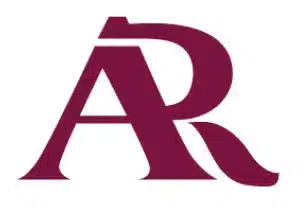Heroin Addiction Treatments
Heroin addiction is extremely dangerous. Learn about heroin addiction and the most effective heroin addiction treatment options here.

Heroin Addiction Treatments
Heroin addiction is extremely dangerous. Learn about heroin addiction and the most effective heroin addiction treatment options here.
Table of Contents
What Is Heroin?
Heroin is an illegal opioid drug made from morphine, a natural substance from the opium poppy plant. It comes in the form of a white or brown powder or a dark sticky substance known as black tar heroin.
Heroin Street Names
Street names for the drug include the following:
- ‘H’ or ‘Big H’
- Junk
- Ska
- Black tar
- Chiva
- Horse
- Hell dust
- Smack
- Thunder
How Does Heroin Affect the Body?
People use heroin by sniffing, snorting, smoking, or injecting it. Once it’s in the bloodstream, the drug gives a surge or rush of euphoria, followed by a relaxing state. Heroin is a central nervous system depressant, meaning it slows down the function of the brain and body, causing relaxation.
The drug is highly addictive, as it binds to opioid receptors in the brain and creates the desired euphoric feeling. As a result, many people become dependent on the drug to function.
What Is Heroin Addiction?
When heroin enters the brain, it attaches to proteins, specifically G protein-coupled receptors (GPCRs) called opioid receptors. These receptors are found in several areas of the brain and body, including nerve cells involved in the perception of pain and pleasure and breath regulation.
The short-term effects of heroin, such as euphoria, relaxation, and pain relief, wear off within a few hours and leave individuals feeling depressed and tired. This leads to drug cravings—wanting to use the drug again to feel better. This cycle can, and often does, lead to heroin addiction.
Heroin Addiction Statistics
In 2020, approximately 902,000 people in the United States reported using heroin in the previous twelve months. From that number, around 691,000 had a heroin use disorder. Tragically, approximately 13,165 people in the United States died from a heroin overdose that same year.1
Risk Factors of Heroin
In order to prevent and understand heroin addiction, it’s important to know the risk factors that may increase the likelihood of developing a heroin use disorder. These risk factors include:
- Having a mental health disorder
- Early drug use
- Experiencing poverty
- Having a lack of parental supervision
- Having peers who use substances
- Having a family history of addiction
Heroin Detoxification
People seeking heroin addiction treatment must first go through detox, either at home or a heroin detox center. Detox is a process in which the body works to rid itself of the chemicals and toxins from substances.
How Long Does it Take to Detox From Heroin?
Detox is often the first step in heroin addiction treatment, and it can take anywhere from a few days to over a week. The amount of time it takes to detox heroin from the system depends on the severity of the addiction and individual factors like weight, metabolism, and overall health.
Dangers of Heroin Detox
While some people try to detox at home, it can be incredibly difficult to do this successfully. Cravings can become extreme, and the physical heroin withdrawal symptoms can be severe. Vomiting, diarrhea, dehydration, pain, tiredness, and cravings are difficult to manage alone, highlighting the importance of heroin detox treatment programs.
Heroin Detox Programs
In these treatment centers, heroin withdrawal symptoms are monitored, and medications are prescribed to assist in detox and reduce or eliminate unpleasant withdrawal side effects. Heroin addiction treatment centers can aid recovery immensely, as they ensure relapse does not occur within the first hours or days after quitting.
Heroin Addiction Treatment
Many heroin addiction treatment options are available. For example, aside from heroin addiction rehab and residential treatment, there are medications and therapeutic interventions. These treatments can help regulate bodily functions while safely recovering from addiction, as heroin addiction can change the brain in ways that make functioning difficult.
While medication and therapy can be useful when used alone, research shows that the best heroin addiction treatment combines both medicine and therapy.2
Medication
Medication for heroin addiction includes methadone, naltrexone, buprenorphine, and suboxone.
Methadone
Methadone is the most common treatment for heroin addiction because it works by acting as a replacement opioid in place of heroin, making it a very effective option. A study found that those given methadone treatments had 33% fewer positive opioid drug tests and were 4.44 times more likely to return to treatment.3
Doctors prescribe appropriate doses by assessing patients’ needs and situations, eventually tapering off heroin and the medication. People who take medication for heroin addiction are more likely to quit heroin, especially when medication treatment is combined with therapy.
Behavioral Therapy
Behavioral therapy is another effective treatment for heroin addiction. Common therapies for heroin addiction treatment and recovery include:
Ongoing Treatment and Relapse Prevention

Successful treatment typically follows several steps: detoxification, behavioral counseling, medication, treatment for co-occurring mental health conditions, and long-term follow-up to prevent relapse. Successful recovery is possible—around 75% of people seeking recovery from a substance use disorder reach their goal.4
Nonetheless, because addiction is a chronic disease, it is important to remember that ongoing treatment is necessary for long-term recovery.
Relapse Prevention Tips
Tips to prevent relapse include:
- Develop a thorough treatment program or attend a heroin addiction treatment program regularly
- Follow through on the aftercare plan and participate in long-term checkups
- Build a support network to help throughout the recovery
- Visit a therapist for ongoing support
- Attend 12-Step meetings
- Invest in oneself by finding new hobbies, eating well, and getting regular exercise
- Don’t be afraid to ask for help when needed
Find Help at Arrow Passage Recovery
Arrow Passage Recovery offers several treatment options for heroin addiction, including inpatient and outpatient treatment. Our team is committed to providing you with holistic and compassionate care, offering one-on-one support to meet your unique needs.
Recovery isn’t linear; it’s a process that takes time. At Arrow Passage Recovery, you will have the opportunity to heal and recover in a serene environment as our skilled staff guides you to a healthy, productive life of sobriety.
You deserve to live your best life. Contact us today at (855) 466-4965.
Resources
- https://nida.nih.gov/publications/research-reports/heroin/scope-heroin-use-in-united-states
- https://nida.nih.gov/publications/research-reports/heroin/what-are-treatments-heroin-use-disorder
- https://nida.nih.gov/publications/research-reports/medications-to-treat-opioid-addiction/efficacy-medications-opioid-use-disorder
- https://www.statnews.com/2021/05/03/people-recover-from-addiction-they-also-go-on-to-do-good-things/















